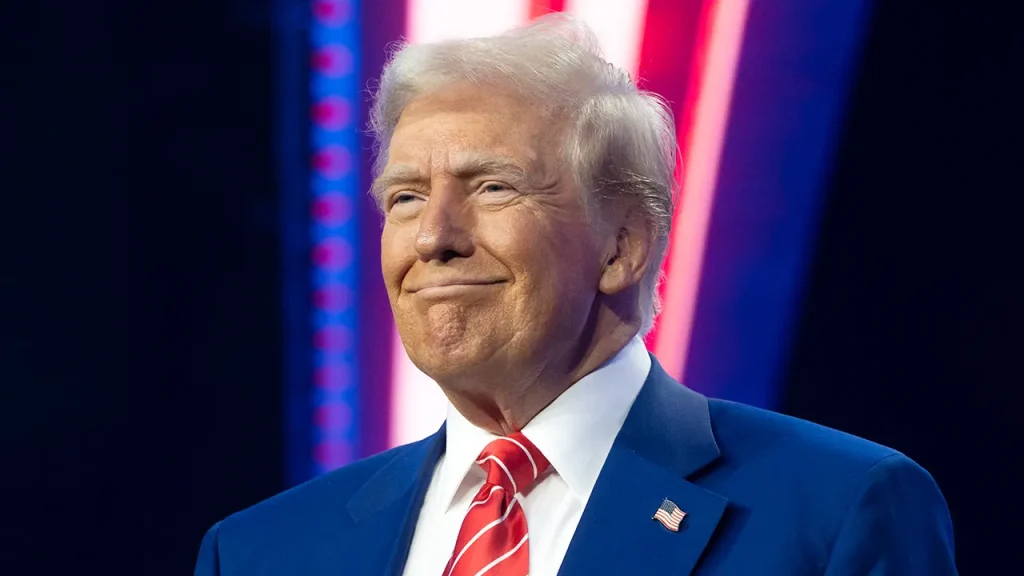President-elect Donald Trump’s recent affirmation of his support for the H-1B visa program has ignited a fiery debate within conservative circles, highlighting a growing schism within the Republican party on immigration policy. Trump’s unwavering stance, echoing the pro-H-1B sentiments of tech mogul Elon Musk and his own appointee Vivek Ramaswamy, underscores a pragmatic approach towards attracting skilled foreign workers, particularly in specialized fields like technology. This perspective contrasts sharply with the more restrictive immigration views held by some within the Republican base, setting the stage for an intra-party struggle over the future direction of immigration reform.
Trump’s endorsement of the H-1B program, a program he claims to have utilized personally in his businesses, is rooted in the belief that these visas bring valuable talent to the American workforce, bolstering innovation and economic growth. He views the program as a strategic tool for attracting highly skilled individuals in areas where domestic expertise may be lacking, a viewpoint shared by many in the tech industry who argue that access to global talent is essential for maintaining America’s competitive edge. This pragmatic stance, however, is encountering resistance from a segment of the right that adheres to a more stringent interpretation of “America First,” prioritizing American workers and expressing concerns about the potential displacement of native-born talent by H-1B visa holders.
The heart of this burgeoning conflict lies in the diverging perspectives on the role of immigration in American society. While Trump and his allies view the H-1B program as a necessary instrument for economic advancement, critics argue that it undermines American workers by allowing companies to hire foreign workers at lower wages, effectively suppressing wages for domestic employees. This clash of opinions reflects the broader tension within the Republican party between a more business-oriented, pro-growth wing that embraces skilled immigration and a more nationalist wing that prioritizes protecting American jobs and restricting immigration overall.
The recent controversy surrounding Laura Loomer’s criticism of Trump’s appointment of Indian American venture capitalist Sriram Krishnan further exposes the fault lines within the Republican base. Loomer’s concerns, centered on Krishnan’s potential influence on Trump’s immigration policies, resonate with a faction of the party wary of foreign influence and prioritizing individuals with a strong “America First” track record. This incident underscores the delicate balancing act Trump faces as he attempts to reconcile the competing interests within his own party, navigating the complex terrain of immigration policy while maintaining support from both his pro-business and nationalist constituencies.
Elon Musk’s vocal defense of the H-1B program, punctuated by his characteristically provocative language, adds another layer of complexity to the debate. Musk, a prominent figure in the tech world, directly links the success of his companies, Tesla and SpaceX, to the contributions of H-1B visa holders. His argument, echoing that of Ramaswamy, centers on the notion that American education has not adequately prioritized STEM fields, creating a talent gap that necessitates the recruitment of skilled foreign workers. This argument, while finding support among some, also raises questions about the long-term implications for American education and the need to invest in domestic talent development.
The ongoing debate over H-1B visas serves as a microcosm of the larger immigration debate raging within the Republican party and across the nation. It highlights the fundamental questions about how to balance the economic benefits of skilled immigration with the concerns of protecting American workers and preserving national identity. Trump’s apparent embrace of the H-1B program, while potentially alienating some within his base, reflects a strategic calculation to prioritize economic growth and maintain America’s competitive edge in a globalized world. The ultimate resolution of this intra-party conflict will significantly shape the future of immigration policy in the United States, influencing the lives and opportunities of both American and foreign workers.

